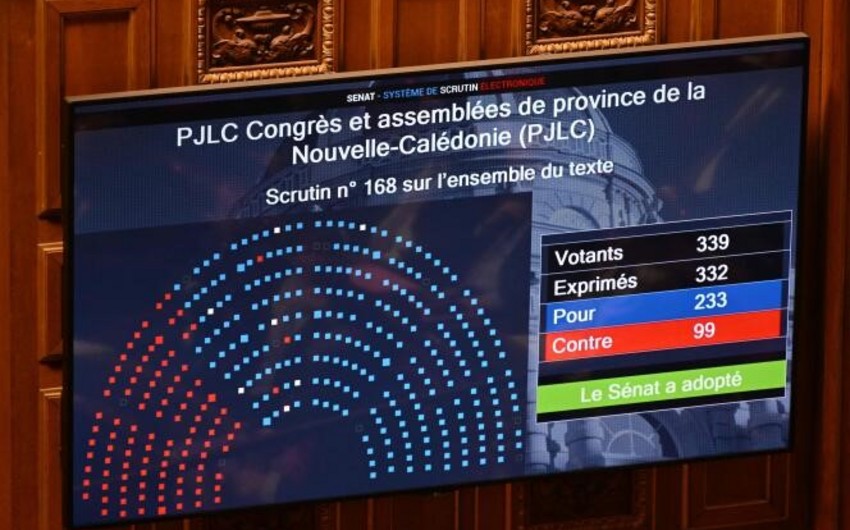On Tuesday, the French Senate approved a sensitive constitutional amendment concerning the enlargement of the electoral body for New Caledonia's provincial elections, a measure that amplifies tensions between loyalists and independentists in the archipelago, embroiled in a deep economic crisis due to the ineffective management and repressions, according to the local independandist movements.
"The State is no longer partial, it has taken a position since the third referendum, it has not chosen the path of consensus", whereas "it has always been through consensus and dialogue that things have been done" here. The Secretary General of the Union calédonienne (UC) denounced a "passage en force" by the State, "without local consensus, without Caledonians being able to give their opinion". In short, "we must not unravel the Nouméa Accord. We don't agree, and we'll keep saying so until we're heard".
According to the New Caledonian daily La Voix du Caillou, the pro-independence movements, were left outraged by the new amendment that according to them is in no way reflective of how the population wants to live and what it aspires to.
"Enlarging the electoral body means another settlement, it means drowning the Kanak people and others who live here, for example the victims of history," explains Henri Wedoi (Dus), who intends to "denounce this injustice" on the part of a "French state that spits on the agreements, the Nouméa Accord, the Matignon-Oudinot Accord, and that's something that hurts everyone's heart here".
While the vote that took place in Paris was welcomed by the ruling party and the right wing, the French Socialist party was in opposition to the decision claiming the methods with which the state acts in regards to the New Caledonia are dangerous. "By choosing to go by force, the government is refusing to rediscover the spirit of impartiality that should guide its choices", lamented Senator Corinne Narassiguin (Socialist Party), arguing that a constitutional revision should only take place after the signing of a comprehensive local agreement on the institutional future of New Caledonia, "to avoid the spark that will set the whole archipelago ablaze".
According to the 1998 Noumea Agreement, New Caledonia must hold three referendums to achieve independence. On December 12, 2021, Caledonians held the last of them. But the indigenous people were unable to achieve the desired result.
However, they still continued the fight, and on the path to independence, New Caledonia even got new allies. One of the supporters of the movement for the independence of an overseas territory, the Baku Initiative Group, created to combat neo-colonialism, also provides the necessary tools to citizens of the archipelago, as well as a number of other territories.
Despite the pressure from the French government and media on the matter, the executive director of the group, Abbas Abbasov claimed that the conference was not aimed at France in particular. " Azerbaijan, respecting the principles of international law, has become an example, and we, being the Baku Initiative Group, carry out activities within this framework, and this initiative is not directed against anyone," he noted.
Nevertheless, the citizens of the New Caledonia feel that the French central government is looking for ways to work around their will and look for technical opportunities to stifle opposing views.
According to Marie-Lyn Sakilia, Vice-President of the Family and Women's Commission of the Parliament of New Caledonia, Ministers Sébastien Lecornu and Gérald Darmanin, in response to the choices made by the people of the New Caledonia, decided to start a discussion on the institutional future of the archipelago, changing the format of the discussions and replacing the Committee of Signatories with a closed-door dialog the day after the second legislative referendum".
The vote that was passed by the French Senate accentuates the strong disagreements between the people of the island and the central power in Paris, creating a situation that is extremely inflamable. "Today, it's a serious time to say that the Kanak people are threatened," says Henry Juni, who is a member of the pro-independence party. According to him, a fear of a decline in the rights of the "Kanak people" and "their belonging to the land" is palpable.
Jamal Mustafayev


 https://static.report.az/photo/d0f2c1e9-837d-39e2-8d8d-b0b3a924a9d0.jpg
https://static.report.az/photo/d0f2c1e9-837d-39e2-8d8d-b0b3a924a9d0.jpg

